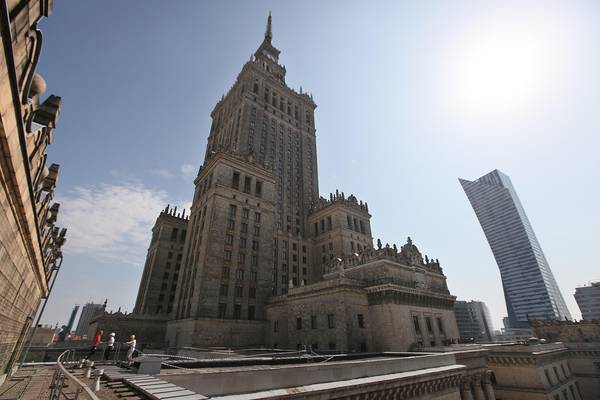Poland 'country with no crisis'looks to future with optimism
Varsaw 'recipe': well-used EU funds and investments, GDP up 3.3
05 September, 19:48by Stefano Giantin
(ANSA) - WARSAW - There is someone who calls it, rightly, ''the country with no crisis', the only one that never experienced a recession in Europe from 2008 to date. There are those who list a series of data: constant GDP growth - 2.6% (2009), 3.7% (2010), 4.8% (2011), 1.8% ( 2012), 1.7% (2013), 3.4% (2014), 3.3% in 2015, according to analysts' expectations. There are those who simply quote it as the best example of transition to democracy and market economy, mentioning the living conditions at the beginning of the nineties. What is the most suitable way to describe Poland today? Perhaps, the best way is to describe it as a country 'on the move'. A country that, despite gray areas - problems due to low birth rate and emigration, exports' over-dependence on the Eurozone, incumbent risks of higher taxation on banks and hypermarkets and urgent need to mitigate the use of coal - continues to grow.
And the country is improving year after year. Poland, in the 'best case scenario'', that is with growth rates almost double the current, by 2025 could exceed ''levels of GDP per capita of Spain, Italy and Portugal'' predicted McKinsey & Company, and today it is at 70% of the EU average. Over the crisis, from 2008 to 2014, the Polish economy has, however, already increased by about 24% compared with 0.7% in the eurozone, which Warsaw, after joining the EU in 2004, is in no hurry to enter. In the same period, anyway, wages have grown, but only by 18-20%, increasing a feeling of disappointment that pervades some sections of the population and which should facilitate the further turn to the right in the general election of October 25, with the Law and Justice Party credited with winning. Companies have been encouraged by the cost of labour.
In 2013, it was 7.6 euro per hour (Italy 28.1). An ordinary worker earns today 435-700 euros, a qualified 550-750 euros, an engineer 1000-2000. Still too little, compared to many EU countries, but may be not in what is now the sixth-largest economy in the EU. A 'tiger' that continues to show its claws and can look to the future with optimism.














